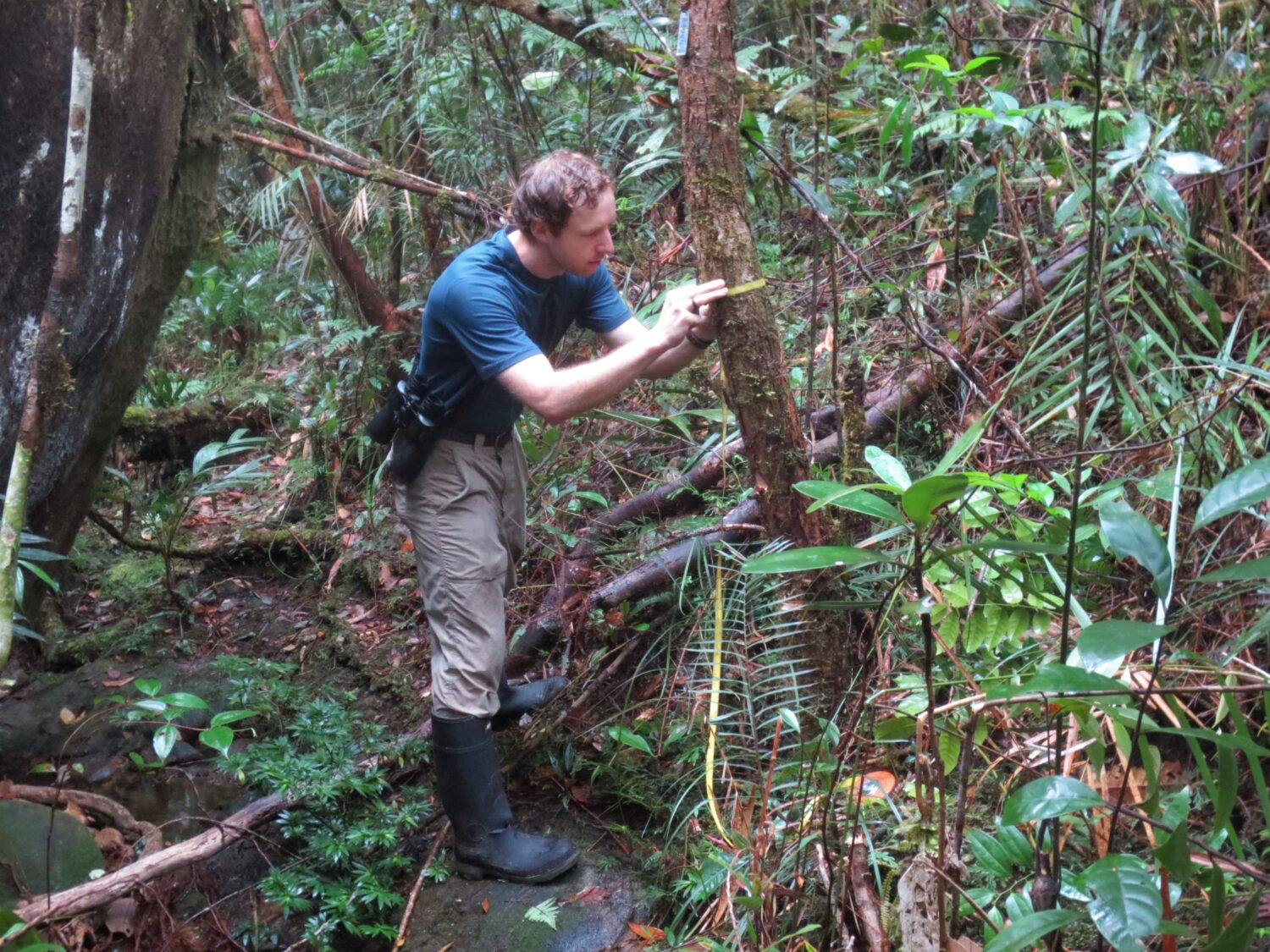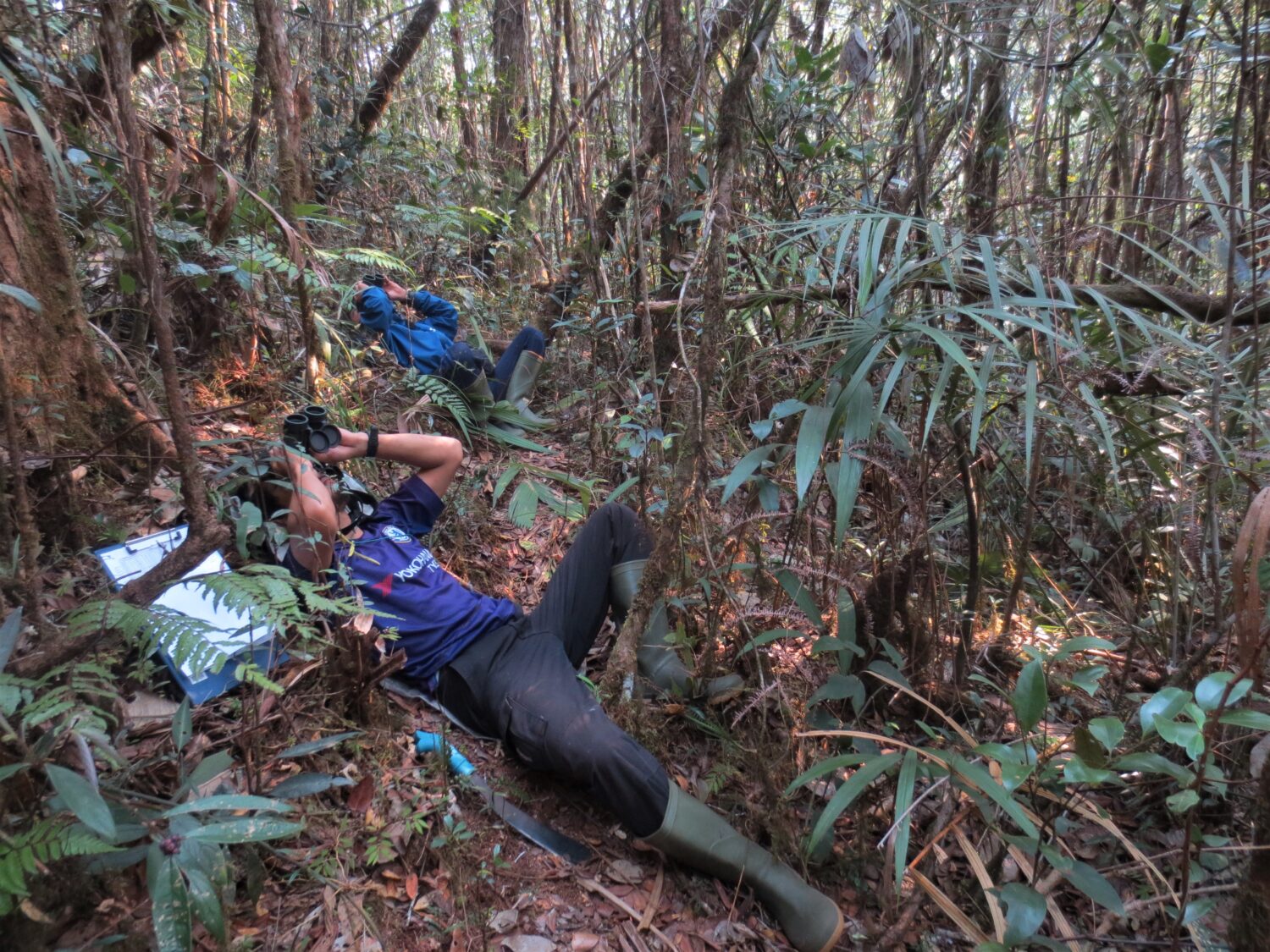Grantee Spotlight
Andrew Bernard is a Ph.D. Candidate at the University of Michigan. He was awarded a Leakey Foundation Research Grant during our Fall 2018 cycle for his project entitled “Effects of climate change on primates, their habitat, and food.”

For over two hundred years, humans have had a profound and measurable impact on Earth’s climate. The consequences of this impact reach a wide range of natural habitats, and affect species across all latitudes. Although temperature changes in polar environments may be higher than tropical environments, human-induced climate change poses a great risk for tropical species because they may lack traits thought to mitigate the effects of rapid climatic changes. These traits include a wider physiological tolerance to variable temperatures, as well as the ability to migrate—essentially “tracking” changes in their habitats as their habitats also shift due to climate change. Primates make for particularly diverse and compelling research subjects as long-lived, socially complex, generally adaptable species. Will primates move to track changes in their habitats, or might they modify their behavior, or even adapt, in place? If they do move, why? What elements of their habitats are actually changing that make it more or less preferable?
These questions frame my dissertation research in Gunung Palung National Park, West Kalimantan, Indonesian Borneo. Here, the forest is stratified along an elevational gradient from sea level to >1000 meters, resulting in seven different forest types in which eight primate species live with differential densities. My research team, including myself and two Indonesian assistants, focuses primarily on the montane forest at the highest elevation. Here, research efforts have been more limited in the past due to the forest’s remoteness, although it is extremely important to sample as a marginal habitat for primates.

Six times a month, my two research assistants and I wake up at 4:45 am, pluck off the newly-plump leeches that we inevitably missed from the night before, and walk one of four 3.5km census routes in the montane forest to document observations of primates, as well as any other vertebrate we observe. Most other days, you will likely find us craning our necks towards the canopy in one of our 10 phenology plots, where each month we observe the reproductive behavior of each individual stem over 10cm DBH. There are currently 1246 of these stems, so we have our hands full.

Fortunately, researchers at Gunung Palung have documented data on primate density and plant phenology for over 30 years, allowing robust comparisons through time as well as across space. I am particularly interested to examine patterns in phenology over time, where analyses might reveal changes in important food sources that have an immediate impact on the primates that rely on them.
Ultimately, I hope that my research provides important theoretical insight into primate adaptation to rapid environmental change, as well as meaningfully contribute to primate conservation efforts.


